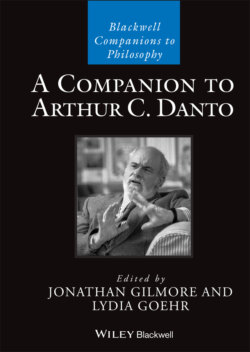Читать книгу A Companion to Arthur C. Danto - Группа авторов - Страница 46
9 A Normative Perspective on Basic Actions
ОглавлениеCAROL ROVANE
Are there such things as basic actions? Is the idea of a basic action philosophically important? Arthur Danto’s novel, and deservedly influential, contribution to the philosophy of action is to raise these questions and then to answer them with a most definite yes.
I want to consider how we should answer these questions if we bring a normative orientation to bear in the philosophical study of agency. Such an orientation has become a familiar fixture of philosophical work on the topic of agency. But I want to situate Danto’s work in relation to a particular elaboration of it that has emerged at Columbia University, where Arthur presided for so long as a senior philosophical figure. This particular normative orientation – which I will characterize as thoroughgoingly normative – governs Isaac Levi’s work on decision theory and rational choice, as well as Akeel Bilgrami’s work on self-knowledge and the metaphysics of agency and value, and also my own work on agent-identity, self-constitution, and the metaphysics of value.
This thoroughgoingly normative orientation invites us to look more closely at aspects of Danto’s views that have not drawn nearly as much philosophical attention as his conception of basic actions, which has enjoyed such enormous influence. The aspects I have in mind concern the agent’s first-person point of view. Although Danto’s scattered remarks about this are fascinating, I do not find in his work a sufficiently elaborated account of three aspects of it: what is epistemically distinctive about the sort of first-personal knowledge that agents possess; what is metaphysically distinctive about the sorts of things that agents know from a first-person point of view; what is a first-person point of view. In what follows, I explore all of these matters, both from Danto’s point of view and from the thoroughgoingly normative point of view of his Columbia colleagues.
